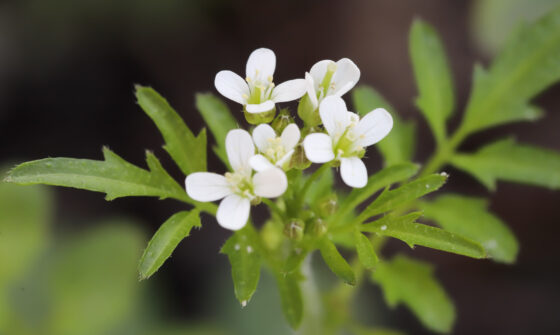
To protect themselves from drought or flooding, certain types of plants naturally secrete an acid similar to aspirin. A surprising process that could pave the way for ideas to protect other types of plants from the effects of climate change.
Acetylsalicylic acid to protect against water stress. It is the substance (similar to aspirin) that certain plants can make, as shown by a study published in Scientific progress. To arrive at these conclusions, US researchers at the University of California at Riverside (UCR) studied a model of a plant known as the “Ladies’ Arabette,” often associated with weeds.
The team of scientists found that in the event of prolonged and intense periods of drought, the studied plant activates a molecule known as MEcPP. The accumulation of this molecule in the cells of the plant promotes the production of salicylic acid, which will thereby spread and develop its protective effect. “It’s like plants are using a painkiller for aches and pains, just like us”explains Wilhelmina van de Ven, plant biologist at the UCR and co-author of the study, in a press release.
“Since salicylic acid helps plants withstand the stresses increasingly common from climate change, increasing plants’ ability to produce it is a step forward in addressing the effects of climate change on everyday life”adds Katayoon Dehesh, co-author of the study and professor of molecular biochemistry at UCR.
The researchers hope to learn more about the mechanism of the stress responses of this type of plant and to be able to apply this to other plants, especially those for our food. “These effects are not limited to our diet. Plants purify our air by capturing carbon dioxide, provide shade and provide habitat for many animals. The benefits of increasing their survival are exponential”however, Katayoon Dehesh specifies.
(ETX Daily Up)